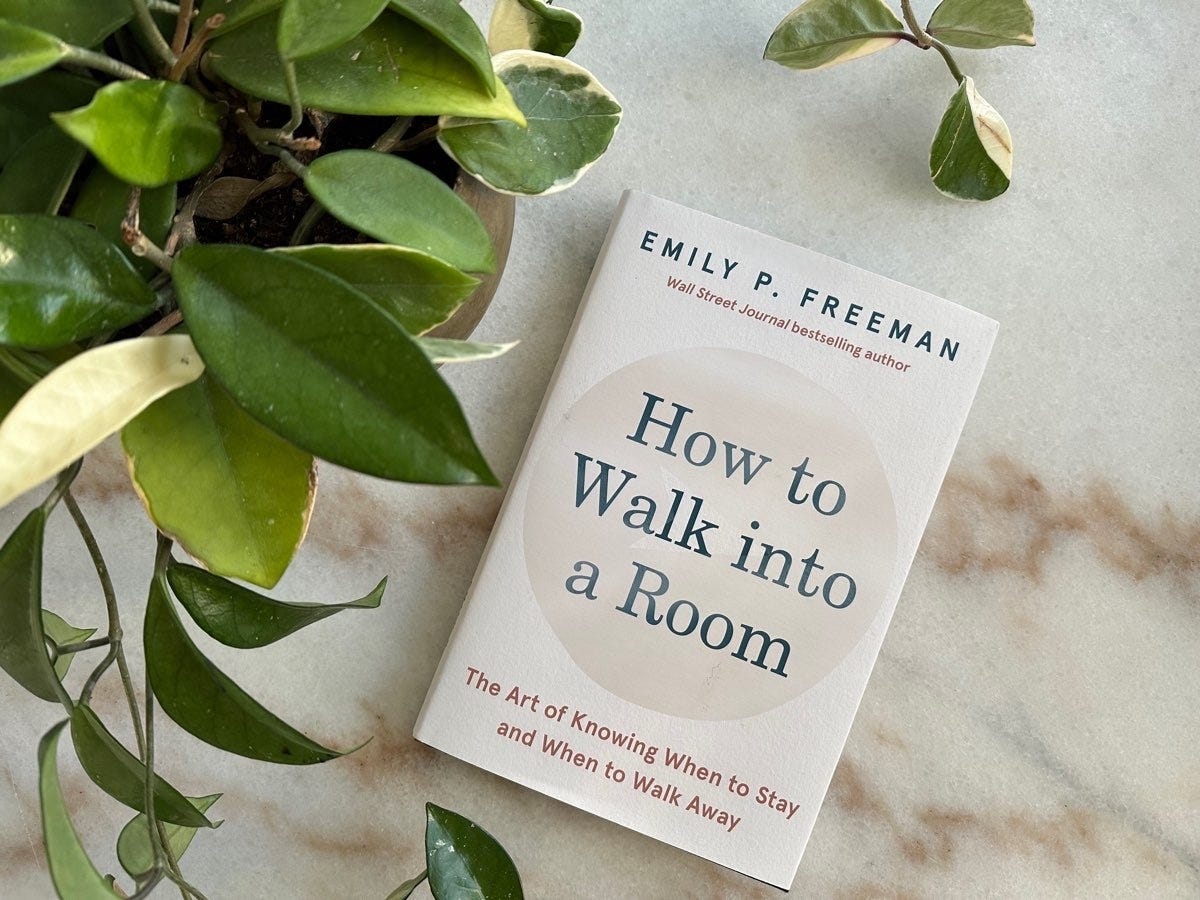It’s time to share my story of how and why we left our (Evangelical, mega) church in 2021.
I’ve been wanting to share the story for a while, but I sensed it wasn’t the time or place yet. I believe in “speaking from your scars, not your wounds.”
Now that I’m writing on Substack to a smaller, more intimate group with other readers who appreciate and strive for the Middle Path, I feel comfortable sharing this complicated and necessary decision with you.
In this newsletter, I’ll share my experience of church and the process up to leaving. The deconstruction of my relationship with the Evangelical Church, if you will.
In part two next week, I’ll share my relationship with church now (spoiler: it’s complicated). This is the reconstruction of your faith when you still love the Church.
How do you know when it’s time to leave? And once you know, how do you leave with grace and confidence?
has written an entire (and excellent!) book about How to Walk Into a Room1, which is really more about how to discern when to leave. From my review of her book:A gentle guidebook about discerning when to leave, when to stay, and when to enter new spaces, this is one you will relate to and learn from… Emily is a wise and gentle leader first to herself and then to us in this practical and thoughtful book.
How do you decide when to leave?
In “Valid Reasons for Staying and Leaving: Church Edition”, on her Substack, The Soul Minimalist (which is totally worth subscribing to), Emily shares several legitimate reasons why someone may not be participating in church life, among them “a shift in personal conviction about a particular doctrine, theology, or practice,” “a period of disentangling inherited views of God from actual God,” and “vulnerability to gatherings because of an illness or threat of illness.”2
In short, our reasons for leaving were all of the above.
In my book, Recovering from Purity Culture, I share a short version of this story:
In 2021, my husband and I made the decision to leave the church we were members of. Since attending that church, we had gotten married, had our first child, and dedicated her in the church. Many of our friends and our biggest support system came from that church. We met with our pastor, and he was gracious and understanding of our reasons for leaving. Although we had overall positive experiences there for many years, we could no longer tolerate the cognitive dissonance of being egalitarians in a complementarian environment.
The reasons for leaving felt like dominoes quietly falling one by one, piece by piece, until the whole house collapsed and it wasn’t sustainable to stay any more.
Because I am sharing so personally today, this full post is available only to those who have invested in this community by becoming a paid subscriber. You’re welcome to join us for $5 per month or $50 per year.




